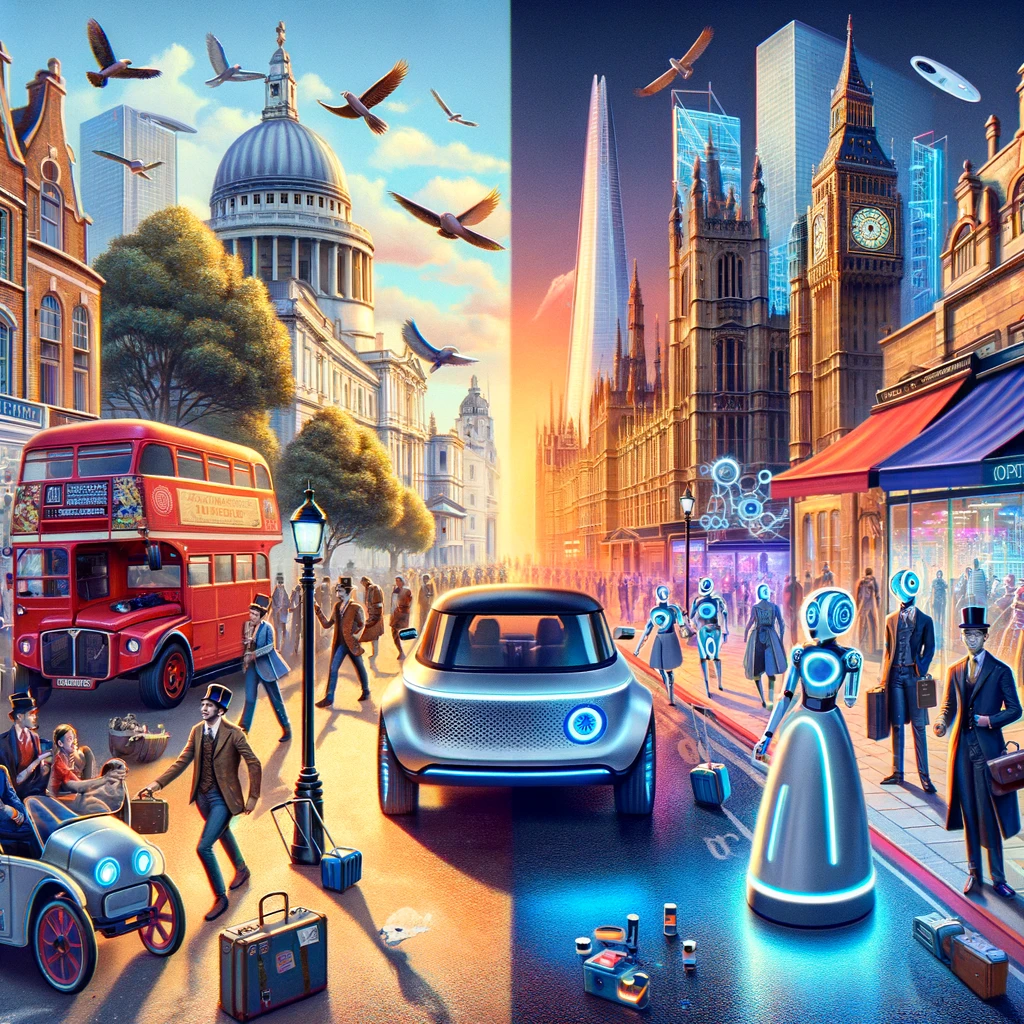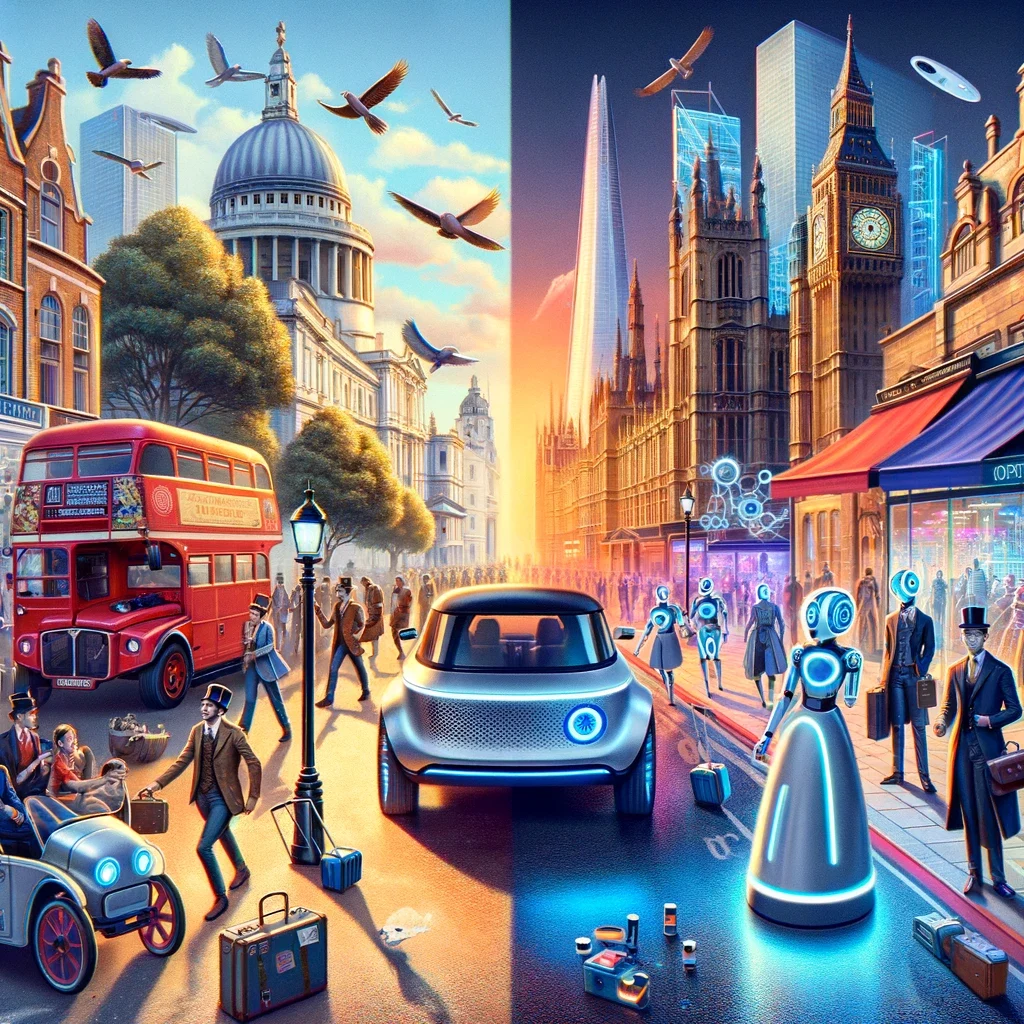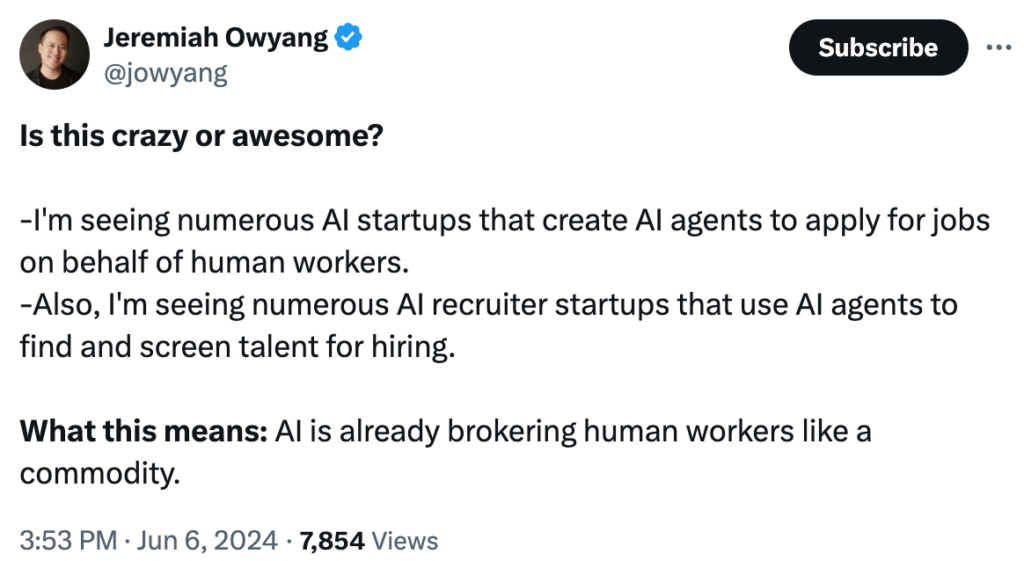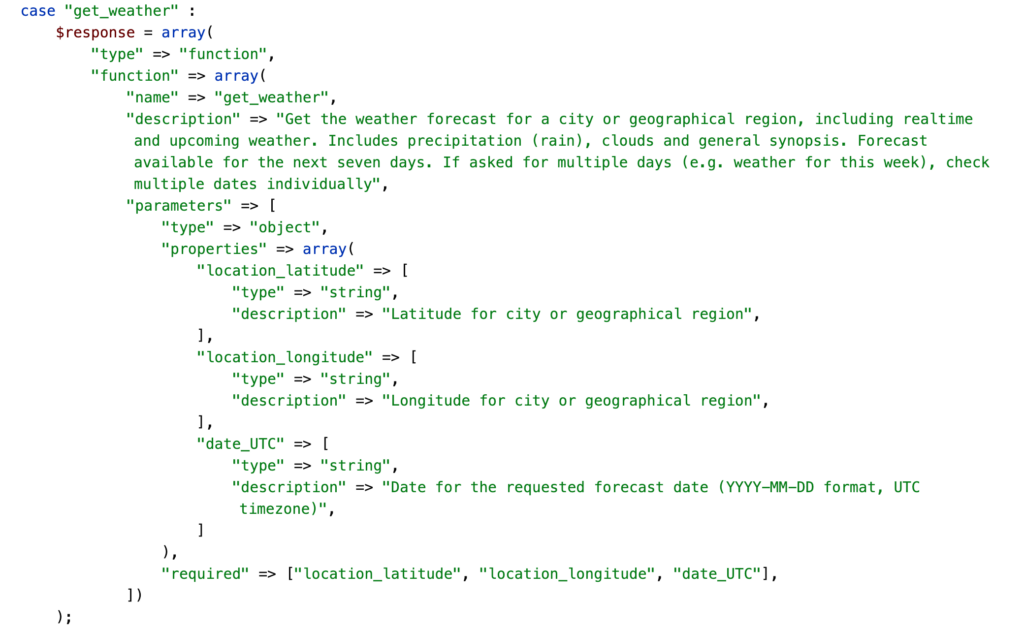
5 big themes for the AI tourism era after 2030
June 7th, 2024
by Alex Bainbridge
Key themes are emerging that will shape the future of tourism due to AI and AGI after 2030.
This article takes a look these five themes and the known unknowns that surround them:
- end of the web browser (for travel ecommerce)
- end of the group tour
- end of the tour guide
- end of the tour bus
- end of the current OTA > reztech > tour operator industry structure
We do NOT need any more AI progress at a fundamental AI level beyond what is available mid 2024 to enable these significant industry changing impacts. The good news is we still need entrepreneurs as none of this will happen with the base technology available from the LLMs such as ChatGPT.
Instead the delivery of these themes just requires a few more months or years of building products or services with the existing or announced AI capabilities at their current prices & speeds.
We will however see increased AI capabilities and speeds over time, so if anything, the themes as outlined in this article might be with us sooner rather than later.
1 – End of the web browser (for travel ecommerce)
Prediction
A consumer’s AI agent will talk to a supplier’s AI agent, negotiate product selection and price and conclude the transaction with no human using a web browser.
AI agents can use the human readable web, but they don’t need the human readable web.
Evidence 1
https://x.com/jowyang/status/1798729850792059152
Evidence 2
AnyTool: Self-Reflective, Hierarchical Agents for Large-Scale API Calls
Source: https://arxiv.org/abs/2402.04253
Interesting early proof of concept with an AI agent given the ability to call any one of the 16,000 Rapid APIs in order to solve any problem a consumer has.
How I think this theme could work
Below is some actual code from the Autoura AI platform (code that I wrote).
We tell the OpenAI, hey if you want the live weather forecast for a particular location, call this tool of ours. We then build a code endpoint that receives this request from the AI and returns the weather…. i.e. AI can have access to live data (including dates, prices, availability), no hallucinations. The AI decides what tools it wants at any moment and when a problem is solved.
We now have about 14 AI tools built, some AI platforms are upto 100.
The AnyTool paper above (that incorporates Rapid API) describes an interesting model based on calling publicly available 3rd party endpoints.
Imagine 1000 supplier websites (websites for the transition!) each holding the text description & capabilities for say 5 AI tools in a publicly readable file. A central AI agent then can call data and services from any of the 1000 supplier websites as it sees fit. We do not need the same 5 tools from each supplier website.
Say one supplier service does vertical video for tourism. Another service has amazing military stories. Another service has tourism information for Paris. The AI agent might choose that it needs a vertical video for a Paris trip, and the opening times & ticketing for the Eiffel Tower. It calls tools from the suppliers as it needs before combining it all back to the consumer.
With this approach we can build an AI industry structure that is decentralised. Exciting. Anyone want to fund this? I will lead it 😉
Known unknowns
- If we have AI agents talking to AI agents, do we need a different data structure standard for distribution? For example should tour date, prices, availability be available on tour operator websites (in the same way as RSS on WordPress works), so that any AI agent can access this information without any API credentials?
- Think what SEO might look like – e.g. AIO – I spend a lot (LOT) of my current time tuning AI to either make an AI tool more visible to an LLM, or less visible, or trying to entice the AI to use a tool in certain ways…. the general rule for AI tool design is be specific. Although that is all within an environment we control, this seems quite useful experience as likely to be exactly how AIO will be necessary if you are building a tool API for third party AI agent use
2 – End of the group tour
Prediction
AI trip planning will generate personalised experiences on demand for guests. e.g. instead of us matching customers with pre-designed itineraries like tours are retailed today, we take the customer and their preferences and their wishes and generate a tour product especially for them.
Evidence
Many companies ranging from Google, Tripadvisor, other OTAs & startups are working on trip planning tools. No breakout solution yet, but seems likely that someone will crack this. Once an itinerary is designed, it is logical that all these companies will want to operate these AI designed experiences.
Known unknowns
- How do we keep local tour operators engaged on this? We need local tour operators as they are able to:
- provide human tour guides where required
- ensure that the AI is using the best local facts and knowledge
- help address operational problems that might occur
- build local distribution e.g. with tourist boards, hotels and other local entities
- How will we personalise experiences? Where will preferences come from? (More coming from me on this soon as been working on this for 12 months!)
3 – End of the tour guide
Prediction
AI tour guides have a place in mainstream tour operating, and even more impact in non-tourism leisure. Won’t be 100% market penetration so human tour guides will remain relevant in some scenarios.
Goes hand in hand with the end of the group tour theme above, as if we move from shared group tours to personalised tours, these can only be commercially operated at scale by AI tour guides.
Evidence
I have been building an AI tour guide for 4 years now. Incredibly hard execution and our primary scale up is ahead of us, but I can see either us or someone else making this work so AI tour guides are inevitable.
Known unknowns
- Will consumers have AI agent assistants long term? Or will consumers have a home AI agent, a travel AI agent, a work AI agent? This changes how we need to think about distribution and where knowledge and tools reside
- On positioning, what can a specialist AI tour guide do over and above a general AI assistant with good travel knowledge and capability?
4 – End of the tour bus
Prediction
Robotaxis and personally owned autonomous vehicles (hireable for the day) will replace tour buses.
Evidence
Waymo (Alphabet/Google) at 50k trips per week. Baidu Apollo at 839k trips in Q4 2023.
Autonomous vehicles are here and scaling.
Known unknowns
- Will we have big mobility platforms? Google? Amazon? Tesla? If so what does this mean for operating tourism product where tourism companies don’t own vehicles they need to operate experiences in their brand? Why can’t the mobility platforms just operate the tours themselves with their own AI tour guides?
- Or will the tour operators & hoteliers build specialist fleets of autonomous vehicles? If so, how do they differentiate vs the big mobility platform autonomous vehicle fleets? Seems differentiation has to be at the vehicle design layer, which is a costly (and time consuming) territory to compete on for relatively small companies taking on the automotive sector.
5 – End of the OTA > reztech > tour operator industry structure
Prediction
I predict we will have a new 3 layer industry
- Top – AI agent assistants (managing the long term consumer relationship)
- Tech – Digital experience platform (including AI tour guides) [The tech we have been building with Autoura]
- Base – Attractions | Human tour guides | Autonomous vehicles
Evidence
None yet 😉
HOWEVER the question really is, can the existing OTA > reztech > tour operator model work with autonomous vehicles & AI tour guides? I don’t believe it does due to four key issues:
- personalisation – current distribution does not support personalisation at all
- ad-hoc tour generation – current distribution relies on pre-designed tour itineraries
- vehicles not owned by tour operators such as robotaxi fleets – how would this work if you distribute via OTAs at one price but the same vehicle is a different price via the mobility platform directly. Far too messy
- zero priced products as will be common with AI tour guides – current OTAs not interested in retailing zero priced products
Show me how I am wrong on this please!
My big overall questions
Beyond the above I have these questions:
- How do we keep revenue and culture local as we rebuild the sector around AI? If we don’t build that into the new industry structure from day 1, we are likely to end up with “Starbucksification” – where a monoculture tourism AI scales globally. I want to avoid that.
- Where do attractions fit into this? Do they remain reasonably much like today with only limited adjustments to their distribution. OR will OTAs use AI tour guides to retail & operate hotel > attraction > hotel…… If OTAs do that, what stops the OTA delivering the experience within the attraction too (e.g. if a zoo), meaning attractions lose control of the experience delivery as well as the experience retail & distribution?
Bookmark this post! Come and argue with me about it on LinkedIn!
Image: ChatGPT / OpenAI

This content is protected by copyright. Link sharing is encouraged but duplication and redistribution is illegal




If you prefer to comment via LinkedIn, here is the thread https://www.linkedin.com/posts/alexbainbridge_5-big-themes-for-the-ai-tourism-era-after-activity-7204940327818833920-rDQq